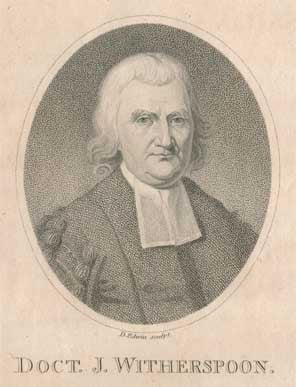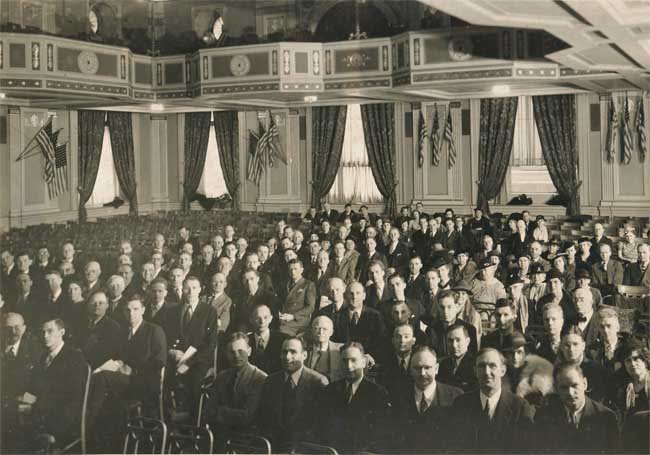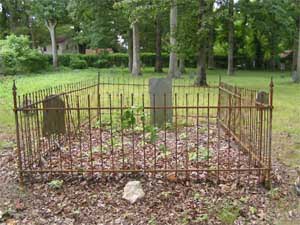This Day in Presbyterian History:
The Preacher and Politician Meets His Savior
 These days, we don’t meet many preachers or politicians who have accomplished as much in the realms of both church and state as the Rev. John Witherspoon did in his seventy-one years of life—and those accomplishments spanned two nations, as well! And that is the reason why we have dealt with this man and his ministry on five separate dates, this one included. (See also February 5, May 17, August 7, and October 20). He was that faithful to the Savior God, the saints of God, and to the average citizens of this great republic. He would go to be with that Savior on November 15, 1794.
These days, we don’t meet many preachers or politicians who have accomplished as much in the realms of both church and state as the Rev. John Witherspoon did in his seventy-one years of life—and those accomplishments spanned two nations, as well! And that is the reason why we have dealt with this man and his ministry on five separate dates, this one included. (See also February 5, May 17, August 7, and October 20). He was that faithful to the Savior God, the saints of God, and to the average citizens of this great republic. He would go to be with that Savior on November 15, 1794.
Born in Scotland and raised to an effective ministry for the kingdom of God there in that “mother country,” Witherspoon answered the call to come to the American colonies. John and Elizabeth Witherspoon, along with their five children, traveled here by ship in 1768. Taking the presidency of the College of New Jersey (later Princeton University), he brought stability to that educational facility in their instruction, library, and financial matters. In the twenty-six years in which he was president, preaching in the nearby Princeton Presbyterian Church known as Nassau Presbyterian, which he founded, and teaching six courses of college level instruction, he taught a president of the United States (James Madison), a Vice-president, nine cabinet members, twenty-one senators, thirty-nine congressmen, three justices of the Supreme Court of the United States, twelve state governors, five members of the Constitutional Convention in 1787, and fifty-two delegates out of one hundred and eighty-eight teaching and ruling elders of the first General Assembly in 1789 of the Presbyterian Church in America. Talk about a vital presence in both the church and the state!
We have all heard of John Witherspoon being the only clergyman who signed the Declaration of Independence, present on that occasion as one of four delegates from the State of New Jersey. But how many of us are aware of the fact that he was to serve on one hundred of the committees working to set up the new nation? He helped draft the Acts of Confederation and supported the adoption of the United States Constitution.
Despite the importance of this civil side of John Witherspoon, he never forgot that first and foremost, he was a herald of the gospel. Consider his words in a sermon he preached in 1758:
“I shall now conclude my discourse by preaching this Savior to all who hear me, and entreating you to believe in Jesus Christ, for there is no salvation in any other. If you are not reconciled to God through Jesus Christ, if you are not clothed with the spotless robe of His righteousness, you must forever perish.”
Witherspoon understood that, as his precious Savior put it in the gospels, you could possess the whole world but lose your own soul outside of Jesus Christ. There was and is no profit in that sad situation.
John Witherspoon would become blind two years before his death at seventy-one years of age. He is buried in the Princeton Cemetery with an inscription on his tombstone of 239 words, all in Latin!
Words to live by: It is rare to find someone in history who accomplished so much for church and state. Usually, when we find someone who has been known for his work in government, it is at the impoverishment of his Christian testimony. But in John Witherspoon’s faith and life, he simply believed strongly that his faith should impact every area of life, including that of the national affairs of his new country. This culture mandate is no different from what is demanded of all believers today. We must enter into every sphere of life with the changeless message of the gospel, seeking to influence those spheres in which God has placed us for His glory and the good of the people found there.
Through the Scriptures: James 1, 2
Through the Standards: The efficiency of baptism
WCF 28:6
The efficacy of Baptism is not tied to that moment of time wherein it is administered; yet, notwithstanding, by the right use of this ordinance, the grace promised is not only offered, but really exhibited, and conferred, by the Holy Ghost, to such (whether of age or infants) as that grace belongs unto, according to the counsel of God’s own will, in His appointed time.”




